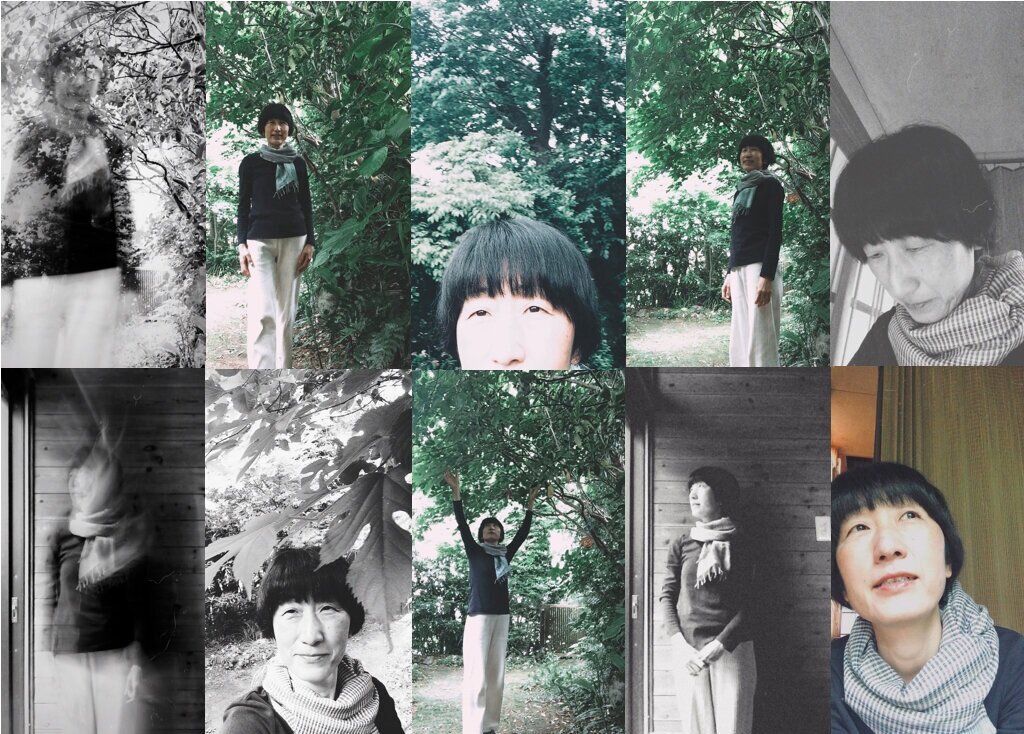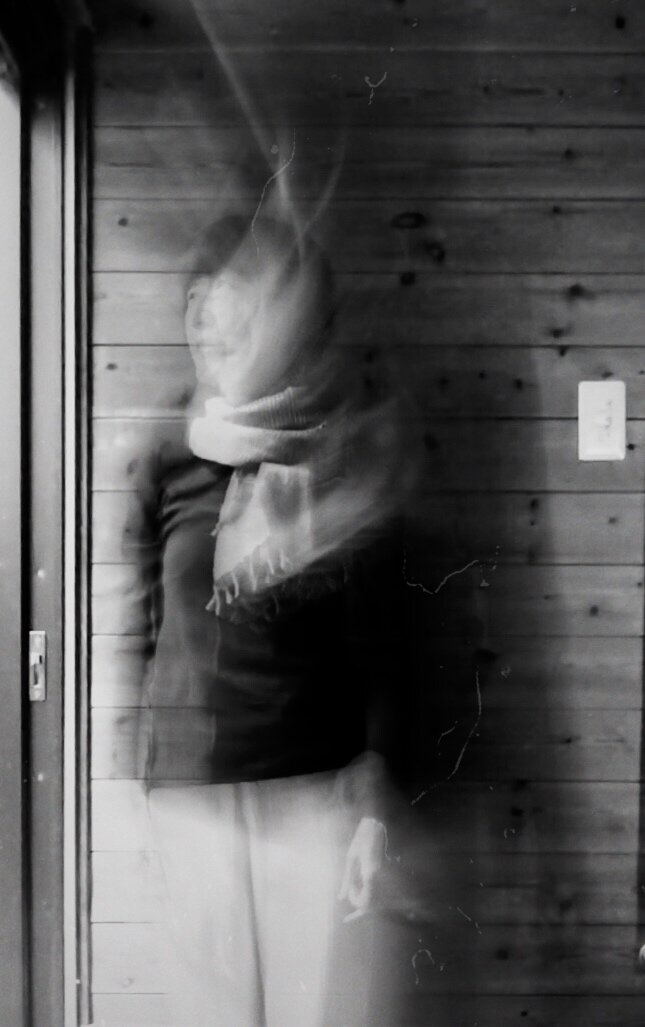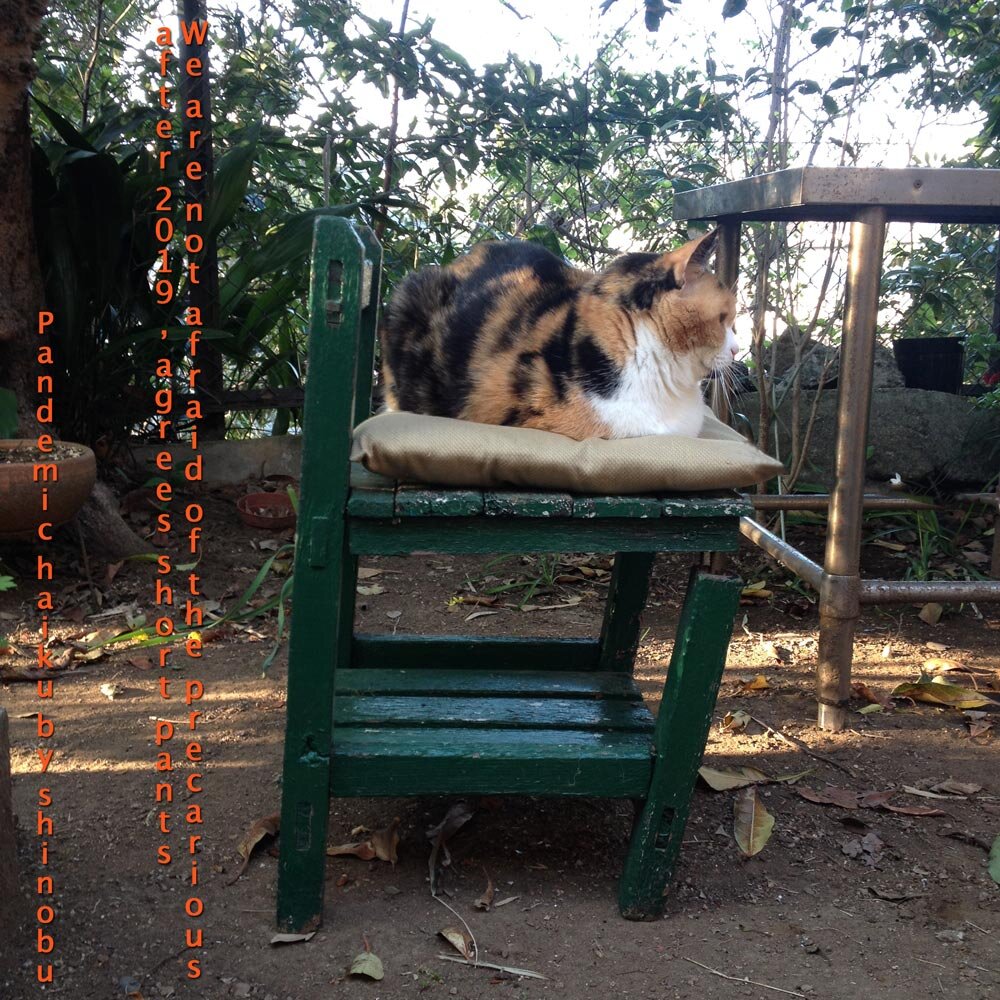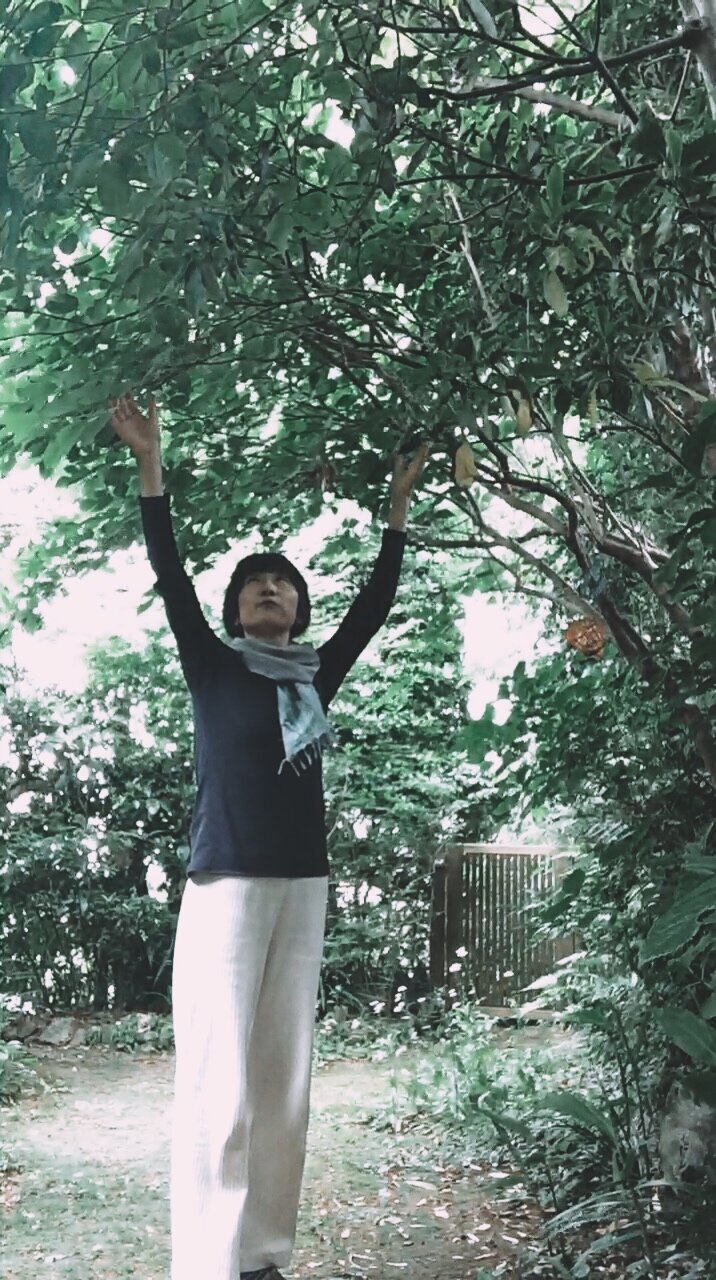ARTISTS WERE PREPARED ALL ALONG (NORMALCY IS BUT AN ILLUSION)
Interview Anne-Mathilde Bilodeau
Text Marla Williams
Photography Marina Castagna
In the line of our conversations with the amazing artists we reach out to at Résidence Éditions, we had planned on discovering more about Shinobu Akimoto, her projects and her practice, split between Canada and Japan. But the conversation took another turn, a joint reflection on the notion of normalcy—or the illusion of it—and how these times of uncertainty and isolation might just be “business as usual” for a lot of members of the artistic community. It uncovers once again the precariousness of being an artist, and how resilient they are, because no matter what, they never stop. They do art. Here’s the story of our encounter with Shinobu.
At the peak of the pandemic, our producer Anne-Mathilde Bilodeau was working on the development of new initiatives for Résidence Éditions in Europe. Unable to get a plane ticket back to Montreal, she found herself stranded in confinement in Japan, in a small village called Imbe, near Okayama, a picturesque city renowned for its thousand-year old pottery traditions, gardens and castle.
As the world started shutting down, a close friend of Résidence in Montréal put us in touch with the visual artist Shinobu Akimoto. Shinobu has lived between Canada and Japan for years and has always been involved in innovative conceptual projects, her work ranging from art installations to design projects to mobilizing artists through initiatives such as Residency for Artists on Hiatus (RFAOH). Anne-Mathilde and Shinobu started corresponding over a series of emails and talked about navigating their way through these unprecedented pandemic times.
“I’m the wrong person to ask about normalcy.”
Creating during the Pandemic
After several weeks, they finally found time to speak over the phone, and as all conversations seem to do these days, theirs started with the inevitable discussion of how COVID-19 was affecting their lives. Shinobu’s lifestyle hadn’t changed much with the epidemic, as she was used to working and creating artwork from home and, apart from feeling jittery when going grocery shopping, her daily patterns remained familiar ones. The exception might be her new ‘Pandemic Haiku’ project: “The Pandemic haiku emerged as a way to say things I may have wanted to say during and about this time and condition we all are going through, but not wanted to say like many others on social media. It’s kind of like John Cage's, “I have nothing to say and I am saying it.” Also, it came solely as an idea for publication; I was translating someone’s art book and perhaps it had a bit of influence over my desire to make a pretty book. While making the haikus with that as a goal, I decided to present them on social media as my own approach to my social media presence. I’ve also started calling it “one project a year project,” a twist of our master, Tehching Hsieh’s “One Year Performance.” Last year, it was the Marmalade.”
Shinobu synthesizes her practice as “art-making as lifestyle.” Apart from having access to different materials, she doesn't find much of a contrast in her approach to creating depending on where she is in the world, as the intimate studio space she created felt the same wherever she was. And social media has been allowing artists to break boundaries all over the world, letting them constantly connect with other artists and art lovers beyond their studios and borders.
While the pandemic hasn’t changed her life much, Shinobu’s parent’s passing in 2019 did, as she had to come back to Japan in order to tend to the family home in the Miura peninsula (by the Tokyo Bay) — hence stretching her between two different realities. In Canada, most of her friends were artists and she was fully immersed in the art world, a world in which she still finds herself most at home. In Japan, however, she feels on the fringes of the art scene, as she never went to art school there. Because of this, she still identifies more as a Canadian artist than a Japanese one.
“I’ll just stay, I’ll just keep going. And maybe it is evolving in the sense that I’m not stopping.”
Artists were prepared all along
Then the conversation found its way back to COVID-19 and how it was affecting artists. She laughed, saying RFAOH’s resident artists-on-hiatus were ahead of the curve, as these strange new times were no stranger than before for them, since many had stopped making art at some point, whether by choice or not, and were always questioning the relevancy of their art practice. Perhaps, for some artists the notion of ‘hiatus’ was also just an illusion.
As for the new ‘normal’ that is so often talked about, she had her suspicions. Although aware of her certain privilege, Shinobu didn’t really find much new in the ‘new’ normal, as artists were always forced to deal with uncertainty and solitary work. She'd already been experiencing her new normal for a while. She saw creativity as immunity, a way to reinvent things in the face of loss. And the more you discuss ‘normal’ the more it becomes nebulous: “Maybe this whole situation is a chance for everyone to reinvent themselves and reinvent things and learn not to obsess in the ways we have in the past. The problem is we’d like to go back to the previous “normal” but that ”normal” was never actually “normal,” for a long time; rather, it became normalized in a short time. In a sense, there was already a “new normal” — that people had to adopt — you know?”
She now noticed stark differences between how Canada and Japan were dealing with the crisis. With Canada largely being a peaceful country, unfamiliar with major disruptions within its borders, COVID was being treated more like an end-of-the-world scenario, while in Japan, there had always been a strong sense of fatalism with earthquakes, typhoons and natural disasters being deeply embedded in the country’s history, its people debating daily on when and where the next big earthquake will take place. Normal is truly a matter of perspective.
The art world needs more humanity
One thing Shinobu hopes will come out of the crisis is a recognition that the contemporary art world needs more humanity. She wants this to start on a small scale, something as easy as institutions responding to every email, acknowledging the humans on the other side of the screen, creating human connections, and building empathy. She also wants social media to evolve from a space of communication to one that connects people by asking what the art community needs — a vision that we share, at Résidence. If anything is to come from this supposed new normal, let’s make sure it’s a more humane and connected world.
ARTICLE PUBLISHED IN AUGUST 2020
About the photographer Marina Castagna
Marina Castagna, a Copenhagen-based Italian photographer and a regular contributor to Résidence Éditions, uses her craft to bring people’s stories to life. With a degree in anthropology under her belt, she has an almost compulsive need to document the way people live, seeing photography as a means to reveal people’s innermost selves.
The pandemic hit just as Marina had started working on various photoshoots in Copenhagen with Résidence (you can see her amazing work in our conversations with Anne Torpe and Morten Halborg-Møller). With the world suddenly in lockdown, we discussed the possibility of going beyond physical barriers and doing remote photoshoots between Copenhagen and Japan. Our first attempt was with artist Shinobu Akimoto. While slightly challenging at the beginning, with Shinobu ‘inviting’ Marina into her home through a tablet, and the obvious technical difficulties this entailed, the two soon connected and explored the possibilities that arose from this beautiful and unique situation.
“This situation pushed me in finding new ways of interacting and connecting with people, since the first 'virtual' shooting I did a few more and it has been a great way to be in touch and involved in people's lives. I also realized how the device I use as a photographer is just a little part of a bigger process.” While Marina thinks the new ‘normal’ will likely bring with it some discomfort, this doesn’t scare her. She thinks we’ll have to explore new ways of living in general, which will also likely mean modifying her practice. She’s fascinated by photography, going to the root of it beyond the device. Ultimately, Marina believes that being uncomfortable and more reflective can lead us to interesting and unexplored paths.











